Best of British: highlights from London Fashion Week Men’s
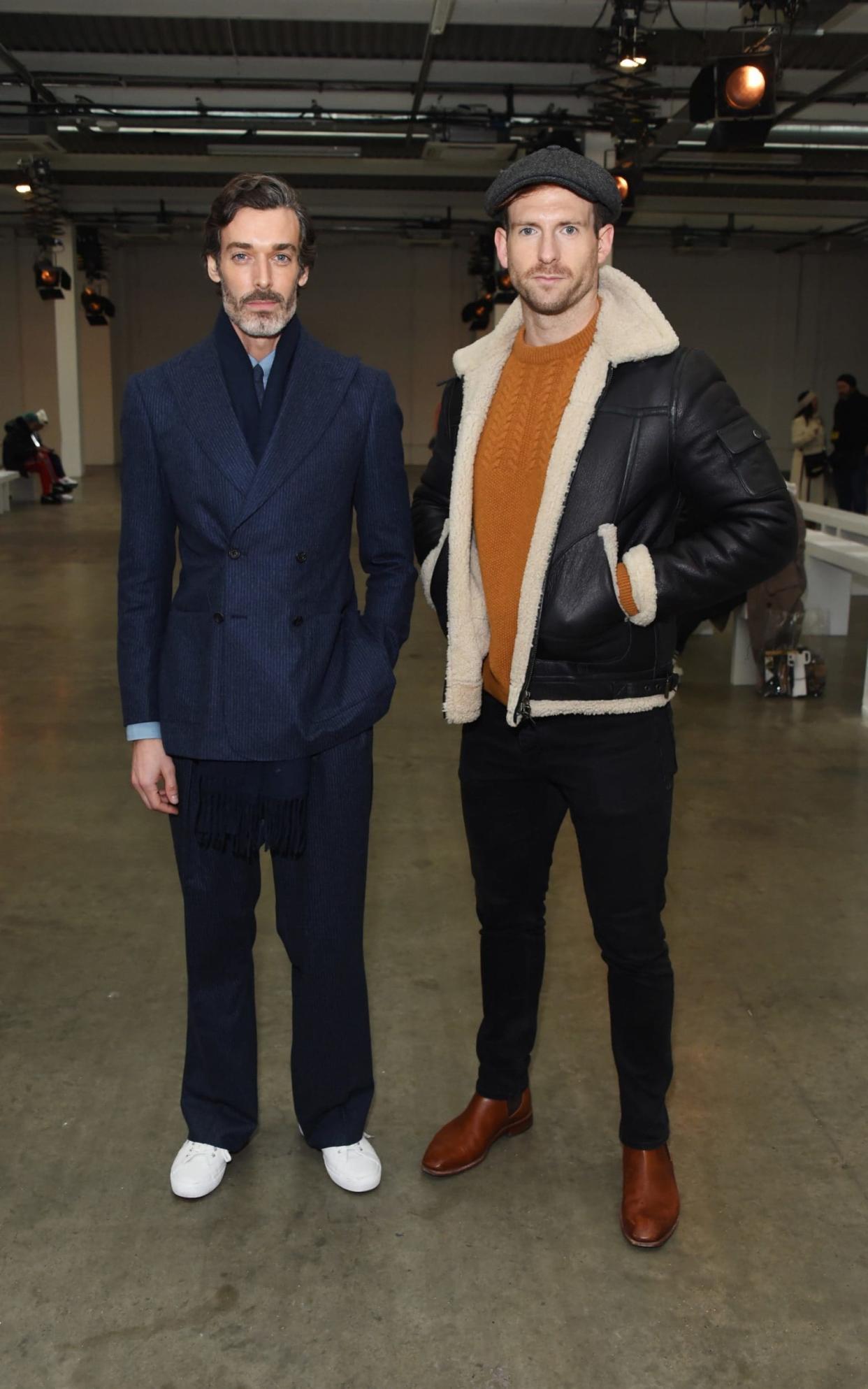
As London Fashion Week Men's came to a close this week, there was one clear theme: British craftsmanship.
From heavy duty shearling jackets at Belstaff, to checks, knits and tweed coats made by British mills for E. Tautz, and David Beckham's 'Peaky Blinders' tribute at Kent & Curwen, the focus was on artisanal techniques and heritage. Here are three 'Best of British' highlights, and a goodbye to Joe Casely-Hayford, the titan of tailoring
Belstaff
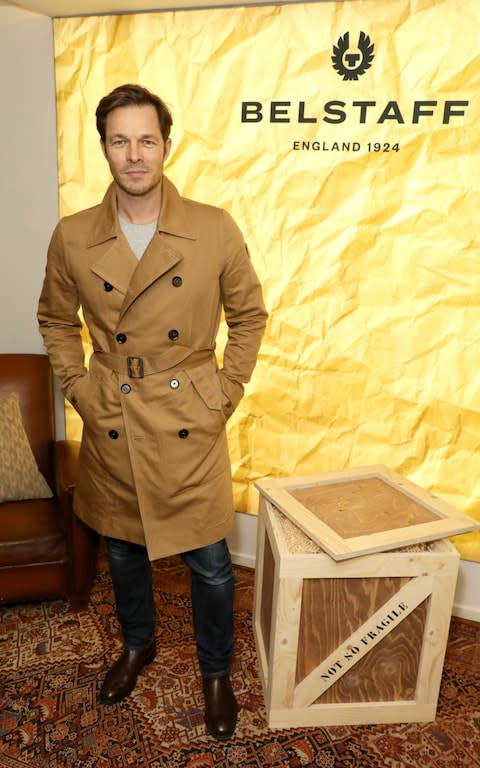
To mark new creative director Sean Lehnhardt-Moore’s debut, Belstaff took its heavy-duty leathers back to their Roaring Twenties originals; roaring in the sense that you could practically smell the petrol fumes on the love-worn, richly patina-ed jackets, this time in rich chocolate and clay-red tones.
The new direction also saw the brand venture into solid outerwear territory with padded coats and cosy shearling jackets, as well as a new range of sleek, minimalist nylon jackets for the urban adventurer.
Oliver Spencer
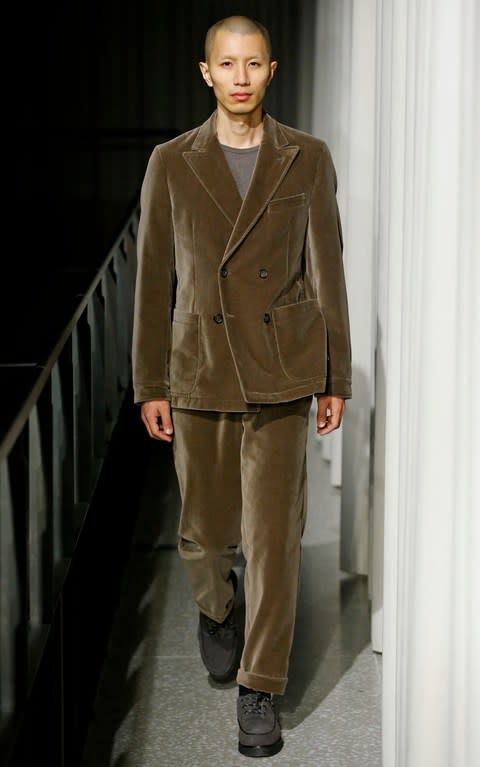
An alpine backdrop was harmonious for a collection that showcased a range of knits made from recycled materials, and balanced outerwear with Spencer’s signature soft-fit tailoring.
The current preoccupation with easy, contemporary tailoring that doesn’t look stiff is arguably the most seismic shift in menswear right now, but it’s testament to Spencer’s conviction that this has always been his territory. Alongside the boxy workwear jackets were a series of fluid velvet suits in bottle green and fawn; evening wear for a generation who don’t do done-up tuxedos.
E. Tautz
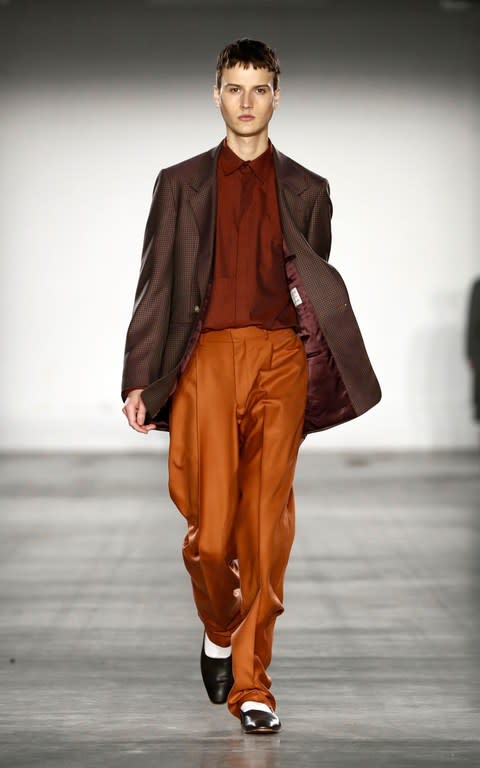
Designer Patrick Grant applied the skill of British mills, from South Wales to Blackburn, to create checks, knits and some handsome tweed coats, with a stop-off on the way; Brazil.
Grant, who has previously mined the dress codes of British subcultures, instead looked to the colours of the Brazilian jungle in shades of forest green and rust. He also proposed a new formula for how to make tailoring relevant – a silk top worn with matching trousers, topped off with an oversized jacket.
Menswear’s quiet force bids farewell
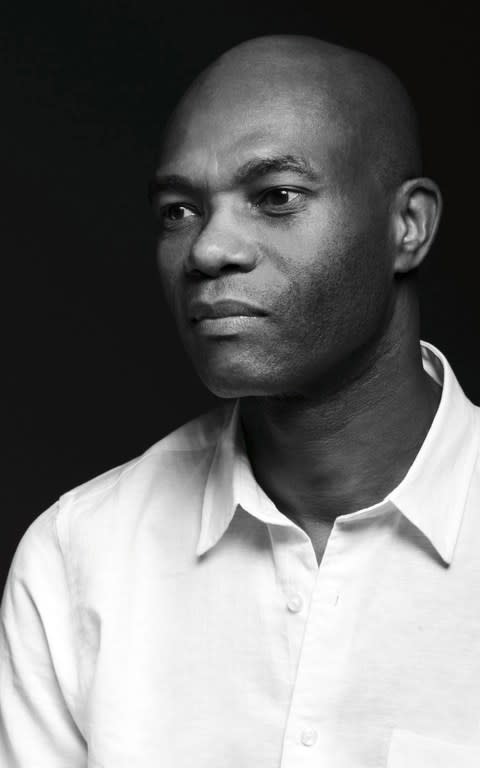
Last week, it was announced that Joe Casely-Hayford, the hugely respected designer, had passed away from cancer aged 62. Gentle and softly spoken - as his son Charlie, who together founded the menswear label Casely-Hayford, wrote in tribute, “never the loudest in the room” but certainly the most talented - he was a titan of his craft and perhaps one of the most important tailors you may never have heard of.
Casely-Hayford began in the creative, if hardscrabble, environment of London fashion in the Eighties, studying at Central St Martins, before beginning his business on Brick Lane.
He was one of the earliest adopters of “up cycling”, turning army surplus tents into garments, before branching into tailoring proper and using fabric from English mills at a time when others dismissed UK manufacturing.
He was no stranger to breaking the mold; his parents hailed from Ghana and he was the first black designer to take the helm at that most august of Savile Row institutions, Gieves & Hawkes. In fact, Casely-Hayford often spoke of how being an outsider looking in honed his fashion eye at an early age.
He went on to launch his namesake label with his son, recently opening a Marylebone flagship store. The brand’s designs combined the rigours of immaculate suiting with touches of exuberance and wit. As London Fashion Week Men’s draws to a close, many of its designers owe a debt to the path that Casely-Hayford, with the lightest of footprints, carved out.
Sign up for the Telegraph Luxury newsletter for your weekly dose of exquisite taste and expert opinion.
